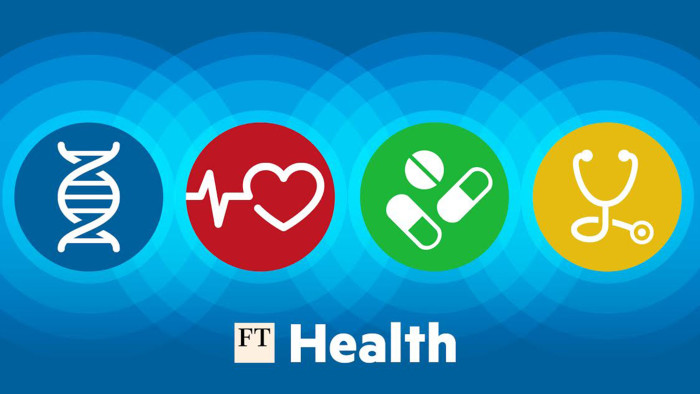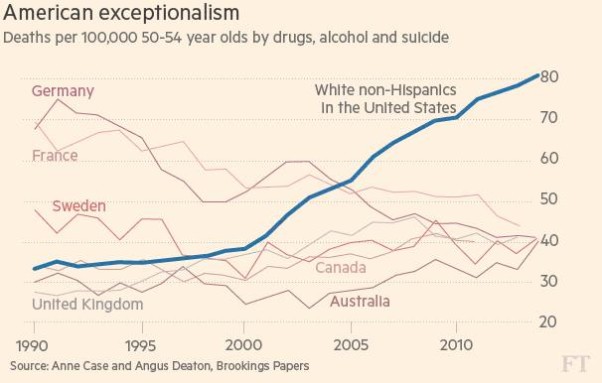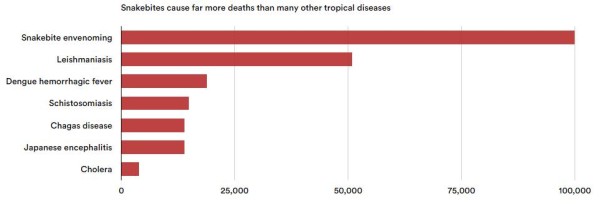FT Health: Healthcare Trumped

Roula Khalaf, Editor of the FT, selects her favourite stories in this weekly newsletter.
President Trump’s fight over healthcare is his first significant test in office. However his reforms are eventually enacted, some people will lose out. The showdown is a sobering reminder for policymakers around the world of the subject’s importance to voters.
Retaining Obamacare would be a political embarrassment for the president, even though his predecessor’s imperfect reforms have considerably extended healthcare coverage. The White House’s proposals risk leaving an additional 24m people uncovered and saving less money than claimed.
Hardline conservatives want to go further, giving more autonomy to individual states to define and cut back on essential cover. Centrists worry about the reduction of protection the proposals will entail — and how that could affect their own re-election prospects.
It would make sense to progress cautiously rather than rush through an alternative framework. As healthcare practitioners in other countries — not least the UK — know well, there is nothing worse than constant tinkering.
A new report from the King’s Fund, the British health think-tank, provides a broader message: there is no magic bullet for funding health systems. The varied approaches used (general taxation, compulsory social insurance, private insurance and out of pocket contributions) reflect history, culture and values of different countries. Improving existing systems may be a better solution than fundamental change.
Follow the latest US developments at www.ft.com/health and on Twitter @FT_Health.
——————————————————————————————————————-
Three questions
Lucica Ditiu, executive director of the Stop TB Partnership.
Is there anything to celebrate on World TB day today?
Robert Koch identified TB in 1882. It’s been almost 25 years since the World Health Organization called TB an emergency. We still don’t have the tools: we have no vaccine, and treatment and diagnosis for many is unchanged. If Koch woke up from his grave, he would feel very familiar in the laboratory. It’s a failure of humanity — the bug is outsmarting us all.
Why are we failing to achieve more?
Everyone is trying very hard but there is something that doesn’t click. I think things will come together in the next 2 or 3 years. We are not using the most advanced tools and not making sure everything is monitored. It’s a failure of the system if we are unable to detect, diagnose or put on treatment for those with TB. It’s a waste of life, of hope. After all these efforts, we are not even detecting half of multi-drug resistant TB.
What needs to change?
Unless we have the proper tools — new drugs and diagnostics — we won’t go anywhere. We need to empower people in the community to have a massive scale-up of treatment. We don’t have disaggregated information and we are still working on paper to collect statistics, while news is circulating instantaneously. We need to move out of the Stone Age. I really hope the new WHO director-general will define priorities, deliver and be held accountable. There needs to be new blood, new people, a new vision. The WHO was created in 1948 by people born in 1900 . . . The world has changed.
Watch our World TB Day interview with Mishal Khan from the London School of Hygiene and Tropical Medicine.
——————————————————————————————————————-
Chartwatch
‘Deaths of despair’ among middle-aged white Americans have risen sharply because of overdoses, suicides and alcohol-related illness. Researchers say globalisation and automation have hit working-class white communities particularly hard. The shift in mortality patterns ends a century of improvements. (FT)
——————————————————————————————————————-
News round-up
Development improves The world’s most marginalised peoples are still being left behind, according to the UN’s Human Development Report. In developing regions the proportion of undernourished people has nearly halved since 1990, and 15.6m lives were saved through measles vaccination between 2000 and 2013. (UN)
Yellow Fever spreads Brazil has appealed for extra supplies of vaccine as the disease outbreak gets closer to Rio de Janeiro and São Paulo, raising fears it could spread to other parts of the Americas. It is proving catastrophic for the country’s primates. (Stat, The Economist)
Zika fightback Sanofi defended government-industry partnerships after Bernie Sanders, a former US presidential hopeful, warned against the administration handing the company an exclusive license for a new vaccine without adequate pricing safeguards. Fears were raised that the outbreak in Florida could hit travellers during the spring break season. (NYT, Miami Herald)
Cholera blast The New York Times took aim at the UN over cholera in Haiti, arguing the agency had a moral duty to fix the problem after the disease was introduced by peacekeepers from Nepal who let raw sewage into drinking water in 2010. The disease has since killed more than 9,000 Haitians and made 800,000 others ill.
Is Gates too positive? Two writers argue Bill and Melinda Gates’ annual letter cherry picks to give an overly optimistic view that poverty is falling, while failing to address tax evasion and problems such as climate change. Charles Kenny ripostes that poverty levels have been cut since 1990 — because poor people are living longer and having children that survive. (Gates, Humanosphere, CGD via IHP)
Serpent scares Snakes bite 5m people each year, killing more than 100,000 and leaving more than 400,000 maimed or crippled. Searches for antidotes have been hampered by low profits, but new investors ranging from the Pentagon to Talking Heads’ musician Jerry Harrison are bringing new hopes to researchers. (Stat)
Spiders and stroke Venom from the funnel web spider may help protect the brain from injury after a stroke. The Stroke Association is encouraged but the treatment has yet to be tested on humans. (BBC, PNAS)
La bella vita Italians are the world’s healthiest people, according to data that take in life expectancy, causes of death and risks ranging from blood pressure to smoking to malnutrition and access to clean water. A healthy diet — as well as a surplus of doctors — means an Italian child born today can expect to become an octogenarian. At the other end of the scale, life expectancy in Sierra Leone is just 52. (Bloomberg)

Decoding the UK A new collaboration between Biobank, the UK public sector research facility, and pharma companies GSK and Regeneron will decode the DNA of half a million Britons. Drug companies are ever keener to gather human genetic data to improve product development. Biobank gives these two companies exclusive use of the DNA data for nine months after which they will be made available to the wider scientific community. (FT)
Sperm count by smartphone Using a phone camera and a special 3D-printed case for magnification, a new app can measure the amount and activity of sperm in semen. The system could sell for $50. aWatch the video for a demonstration. (Stat)

Superbug overkill We shouldn’t get carried away with talk of antibiotic-resistant superbugs and an impending apocalypse. The secret to halting the spread of antibiotic resistance is education. (The Conversation)
Diabetes AstraZeneca’s Farxiga drug sharply reduced the chance of hospitalisation and death from type 2 diabetes in a “real world” trial. Pascal Soriot, the chief executive, thinks sales will top $1bn in 2017. (FT)
Indian reforms The country's health minister said the government’s new National Health Policy would improve outcomes and reduce out-of-pocket expenses, but critics say it hands too much power to the private sector. (Times of India, Scroll.In)
Social care The lossmaking UK home care industry is “on the point of collapse”. Cuts to local government budgets, shortages of trained nurses and tougher immigration rules have been blamed. (FT)
——————————————————————————————————————-
Best from the journals
Healthy hearts The Tsimane people in the Bolivian Amazon, who have a subsistence lifestyle of hunting, gathering, fishing, and farming, have the lowest recorded levels of coronary disease. (The Lancet)
Aids targets Measures including a partially effective vaccination — ready by 2020 — could cut the number of new cases from 49m to 17m by 2025, according to an analysis of the UN HIV/AIDS programme. (PNAS)
Conflicts of interest To avoid the benefits of taxpayer grants going to corporate profits, researchers should disclose all potential or existing conflicts including research, teaching, consulting, peer review, grant writing, conference organisation and publishing. (Nature)
Tobacco reduction The WHO’s global tobacco control treaty of 2005 has led to a 2.5 per cent decrease in smoking rates but in many countries taxes need to be raised so prices increase. This remains the most effective means of reducing tobacco use, especially in low-income and middle-income countries. (The Lancet)
Mass produced blood As current methods for supplying safe blood cannot keep up with demand, UK researchers have discovered how red cells can be manufactured for clinical use from in vitro culture (BBC, Nature Communications)
Alzheimer’s hopes A new test can help predict the age at which the disease can strike. Genetic data combined with incidence figures generate a risk score. (PLOS)
Publishing models Research funded by the Bill & Melinda Gates Foundation must now be placed in a special free-to-read repository run by the Wellcome Trust. The move threatens the business model of established scientific journals. (The Economist)
——————————————————————————————————————-
Podcast of the week
Alzheimer’s theory Discussing a new hypothesis that the disease could be caused by an infection of the brain. (JAMA, 27m)
——————————————————————————————————————-
You may have missed
FT Health Issue 1, Issue 2, Issue 3, Issue 4
——————————————————————————————————————-
Final thought
Is it possible to measure happiness? The UN thinks so. Its World Happiness Report says Norwegians are the most content people on earth, closely followed by Danes, Icelanders and the Swiss. Tanzania, Burundi and Central African Republic are at the unenviable bottom of the table. The research marries data on health, income and good governance with notions of caring, freedom, generosity and honesty.


Comments